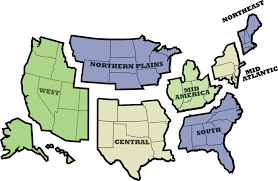 There has been an ongoing debate about whether policing is a profession, simply a calling or just a job. In the United States professions are defined as occupations that have common educational requirements, national accreditation, ongoing training requirements, a single code of ethics, and exacting certification requirements. None of this applies to policing, at least not in a uniform manner.
There has been an ongoing debate about whether policing is a profession, simply a calling or just a job. In the United States professions are defined as occupations that have common educational requirements, national accreditation, ongoing training requirements, a single code of ethics, and exacting certification requirements. None of this applies to policing, at least not in a uniform manner.
If we were to apply the current standards for police training to the medical field we would be disheartened to learn that the term ‘doctor’ would have different meanings in different states. If everyone in the medical field was called a doctor, regardless of training, you might end up with a veterinarian when you actually need a surgeon.
The creation of the NPA opens the door for policing to become a profession. By having national standards and national accreditation, police officers in any city could laterally transfer anywhere in the country. In addition, when an occupation is raised to the level of a profession, the pay gets better.
Recent events have caused the public to have their lowest approval ratings of police in decades. If you talk with officers it is easy to feel their frustration. They work hard every day, but still feel that they don’t have public support. Further, they state this is resulting in a lowered level of cooperation and a lower solve rate.
If you talk with officers it is easy to feel their frustration. They work hard every day, but still feel that they don’t have public support. Further, they state this is resulting in a lowered level of cooperation and a lower solve rate.
Because the NPA will listen to public concerns about the police and develop training programs to address them, public support for the police will improve. National certification will give the police more gravitas with the public and in court.
 It is important to know that the NPA does not need to be located in only one place. It could easily be a single entity in terms of leadership, but still have regional academies. Such an approach might serve to further connect the public with the NPA and make it easier for chiefs and sheriffs to visit, since the academy would likely be closer.
It is important to know that the NPA does not need to be located in only one place. It could easily be a single entity in terms of leadership, but still have regional academies. Such an approach might serve to further connect the public with the NPA and make it easier for chiefs and sheriffs to visit, since the academy would likely be closer.
The NPA would also serve a financial purpose. Local and state academies cost a lot of money to maintain and operate.  Many small departments cannot afford an academy at all, and are forced to accept recruits who have attended private police academies….often in situations in which the recruits had to pay for their training themselves. The NPA would largely eliminate these inequalities between departments.
Many small departments cannot afford an academy at all, and are forced to accept recruits who have attended private police academies….often in situations in which the recruits had to pay for their training themselves. The NPA would largely eliminate these inequalities between departments.
Trust between the police and the public is a topic that cannot be overstated. In a democracy trust is fundamental for police organizations.  Research shows the the single most important factor in determining whether or not the police will solve a crime is their relationship with the public. The NPA would go a long way towards building that trust. It follows then that we could expect the NPA to help improve the solve rate, furthering public confidence.
Research shows the the single most important factor in determining whether or not the police will solve a crime is their relationship with the public. The NPA would go a long way towards building that trust. It follows then that we could expect the NPA to help improve the solve rate, furthering public confidence.
Just last week we talked with the chief of a large West coast department. He complained that all of his recruiting efforts were expensive and largely ineffective. Where in the past thousands of applicants would apply for 100 positions, these days he often has trouble finding enough qualified applicants to fill a class. The NPA will help with this by expanding the applicant field.
Returning, for a moment, to the DoD (from the previous post) and our nation’s veterans. The Pro American Party strongly supports the idea of creating a path for qualified separating veterans to go directly into the NPA. In such an instance, departments could easily go to the NPA to recruit those candidates that best meet their needs. As an improvement to the current recruiting process, these candidates would already have a track record at the academy, allowing departments to be much more successful in finding good recruits as they would be able to see and compare recruits according to their department’s standards and needs. It would be better for recruits as well. Recruits would be able to evaluate all offers and go to the department of their choice.
In such an instance, departments could easily go to the NPA to recruit those candidates that best meet their needs. As an improvement to the current recruiting process, these candidates would already have a track record at the academy, allowing departments to be much more successful in finding good recruits as they would be able to see and compare recruits according to their department’s standards and needs. It would be better for recruits as well. Recruits would be able to evaluate all offers and go to the department of their choice.
This would not prevent departments from selecting their own recruits and then sending them to the academy. Even when departments chose to send an entire recruit class to the NPA they would enjoy substantial cost savings as compared to a local academy.
